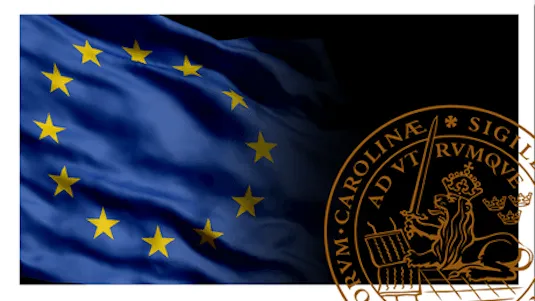
European Business Law: Understanding the Fundamentals 
This six week course provides students with an introduction to European Business Law, covering the basic structures and principles of the European Union. Students will gain an understanding of the laws and policies that regulate the internal market of the European Union, and will benefit from case law and insights from leading practitioners. ▼
ADVERTISEMENT
Course Feature
![]() Cost:
Cost:
Free
![]() Provider:
Provider:
Coursera
![]() Certificate:
Certificate:
Paid Certification
![]() Language:
Language:
English
![]() Start Date:
Start Date:
17th Jul, 2023
Course Overview
❗The content presented here is sourced directly from Coursera platform. For comprehensive course details, including enrollment information, simply click on the 'Go to class' link on our website.
Updated in [March 06th, 2023]
The European Union is one of the world's largest and most important economies This six week course is the first in a series of three that will provide students with an insight into European Business Law The series ranges from considering the basic structures and principles of the European Union to focusing on various specialized areas of law Each course will give the students an understanding of the laws and policies that regulate the internal market of European Union as well as relevant case law and useful inputs from leading practitioners in the field
At the end of this course series you will have a basic understanding of how to:
Navigate EU legal sources
Understand relevant laws and regulations governing the internal European Union market
Apply the fundamental principles of EU law within the EU legal framework
Utilize the rules of freedom of movement and their impacts on trade in the EU
Relate EU law with national laws
Understand how individuals and companies are able to enforce their EU rights on national level
Understand how an individual can challenge an inadequate EU legislation
Understand EU policies and their influence on foreign trade and investment
About the Series
In the first course Understanding the Fundamentals we will examine the core structures and principles of the European Union as well as the main sources of law In the second course Doing business in Europe we will focus on the main laws that regulate various aspects of establishing and running a business within the European Union In the final course Competing in Europe we will go into more depth about how to compete on the internal market and protect your brand product or invention
To keep up to speed on the course series visit our Facebook page at:
Syllabus and Format
Each course consists of a number of modules where one module represents about one week of work A module includes a number of lectures and readings and finishes with a voluntary assessment : a quiz a small peer graded assignment or a case law review The assessments are intended to encourage learning and ensure that you understand the material of the course Participating in forum discussions is voluntary
Course I - Understanding the Fundamentals
Module 1 Introduction to EU law
Module 2 Legal Method and Sources
Module 3 Constitutional Freedoms and Fundamental principles
Module 4 Enforcement of EU Law and Judicial Review
Module 5 Freedom of Movement
Module 6 The External Dimension
Course II - Doing Business in Europe
Module 1 Making Business Transactions
Module 2 Establishing a Company
Module 3 Employing and Working in Europe
Module 4 Paying Taxes and Complying with Environmental Standards
Module 5 Resolving Cross-border Disputes
Module 6 Case Clinic
Course III - Competing in Europe
Module 1 Trademarks as Essential Assets
Module 2 Defending Patents
Module 3 Competition: Illegal Agreements
Module 4 Competition: Abuse of Dominance and Mergers
Module 5 Selling to the State and State Aid
Module 6 Advocacy and Legal Writing
Lund University
Lund University was founded in 1666 and has for a number of years been ranked among the world's top 100 universities The University has 47 700 students and 7 500 staff based in Lund Sweden Lund University unites tradition with a modern dynamic and highly international profile With eight different faculties and numerous research centers and specialized institutes Lund is the strongest research university in Sweden and one of Scandinavias largest institutions for education and research The university annually attracts a large number of international students and offers a wide range of courses and programmes taught in English
The Faculty of Law is one of Lund University's four original faculties dating back to 1666 It is a modern faculty with an international profile welcoming both international and Swedish students Education research and interaction with the surrounding community are the main focus of the Faculty's work The connection between the three is particularly apparent in the programmes and courses offered by the university including the university's MOOC course in European Business Law The students get the chance to engross themselves in traditional legal studies while interacting with both researchers and professionally active lawyers with qualifications and experience from various areas of law
The faculty offers three international Masters: two 2-year Master's programmes in International Human Rights Law and European Business Law and a 1-year Master's in European and International Tax Law Students from around 40 countries take part in the programmes which offer a unique subject specialization within each field with highly qualified researchers and professional legal practitioners engaged in the teaching
The Master's programme in European Business Law provides an in-depth understanding of both the practical and the theoretical aspects of business law within the European Union The programme provides both general and specific knowledge of the European Union legal framework which is necessary for students intending to work as legal advisors or business decision-makers The programme is delivered in English and is open to students with at least a three year degree in Law (Bachelor LLB or equivalent) who want to specialise in European economic and business law
The MOOC course in European Business Law is a great course to start with for students intending to apply for the Master's programme in European Business Law Even though the MOOC course does not grant credits previous knowledge of the subject is considered upon admission to the master's programme For more information about the Master's programme in European Business Law see !meb
Course Syllabus
Introduction to EU law
Welcome to the first week of Understanding the Fundamentals. This first module will help you to build a solid foundation for the coming lectures on EU law. The module provides a brief introduction to the history and the institutions of the EU, as well as the judicial branch i.e. the Court of Justice of the EU. The module will also go into some detail about the most fundamental EU treaties, namely the Treaty on the European Union (TEU) and the Treaty on the Functioning of the European Union (TFEU).Sources and Method
The second module will give you a practical introduction to the legal sources and method of EU law. It will provide you with some skills that are crucial when dealing with EU law, such as navigating the vast databases of official publications, legislation and case law. The module provides an overview of the available online resources and EU legal databases. It provides suggestions on how to search the official journals, including the case law of the ECJ. In addition, the module explains what treaties, regulations and directives actually are, and where to find them online. Keep in mind that the module can be used as reference if you continue your studies of European Business Law.Fundamental Principles
In the third module you will learn about the fundamental principles and constitutional foundations of EU Law. The dynamic and interaction of the national law of the Member States and the EU will be covered in some detail. This includes the three categories of competence – exclusive, shared and supporting. The effects of the exercise of competence are discussed, as well as relevant case law. A brief historical background is given to the principle of fundamental rights along with its application in contemporary Europe. Finally some of the main principles of EU law are discussed, including the principles of proportionality, non-discrimination and legal certainty.Enforcement of EU Law and Judicial Review
The fourth module covers the enforcement of EU law and judicial review. In the previous lectures, you have learned that the EU confers certain rights on individuals and companies and that the EU has certain powers conferred to it by the Member States. This module examines the essential question of how you – as an individual or as a company – are able to enforce your rights at a national level and how you can challenge a legislation through which the EU has acted outside of its conferred powers.The Economic Freedoms
Module 5 introduces the four freedoms, including free movement of services, goods, persons and capital. These economic freedoms are at the very heart of EU Law and crucial to understanding the law from a business perspective. The module considers the relevant legal provisions and the key case law. It continues to introduce the right to establishment and discusses the harmonisation of EU law in the national law of member states. In the end of this module you will be given the chance to do a peer graded assignment and earn an honors certificate. You will find the assignment under "Assessments."The External Dimension
Module 6 focuses on the common European foreign policy and its institutional setup. This is a complex field where the policies of the individual Member States and the EU overlap and interact. The external dimension is important for anyone conducting international trade or upholding relations with the EU. The division of competence is discussed in the module, followed by a review of the seven main EU institutions and players and their respective role relating to foreign policy. The module gives a thorough overview of the six fields in the external dimension of EU Law: Common commercial policy; EU development policy; Foreign and Security Policy; Security and Defence Policy; Energy Market; Freedom, Security and Justice. Finally, the module gives a brief history of the EEA Agreement, as well as its application.Pros & Cons

Rich content presented by dedicated professors.

Helps understand EU legal structure and its institutional framework.

Simple language makes it easy for people without legal background.

Difficult for those with engineering background.

Not part of any specialisation/certificate.

Additional work required to get a solid grasp of the topic.
Course Provider

Provider Coursera's Stats at AZClass
This six-week course is the first of three modules and will provide students with an in-depth understanding of European business law. Each module will provide students with an understanding of the law and policy governing the EU internal market, together with relevant case law and useful input from leading practitioners in the field. Each course is made up of a number of modules, with one module representing approximately one week's work. A module consists of many lectures and readings and ends with a voluntary assessment – a quiz, a small peer-marked assignment or a review of case law.
Discussion and Reviews
0.0 (Based on 0 reviews)
Explore Similar Online Courses

Natural Language Processing (NLP)

Planning and Managing Enterprise-level Agile Transformations

Python for Informatics: Exploring Information

Social Network Analysis

Introduction to Systematic Review and Meta-Analysis

The Analytics Edge

DCO042 - Python For Informatics

Causal Diagrams: Draw Your Assumptions Before Your Conclusions

Whole genome sequencing of bacterial genomes - tools and applications

Business Law

Business 103: Introductory Business Law


Start your review of European Business Law: Understanding the Fundamentals